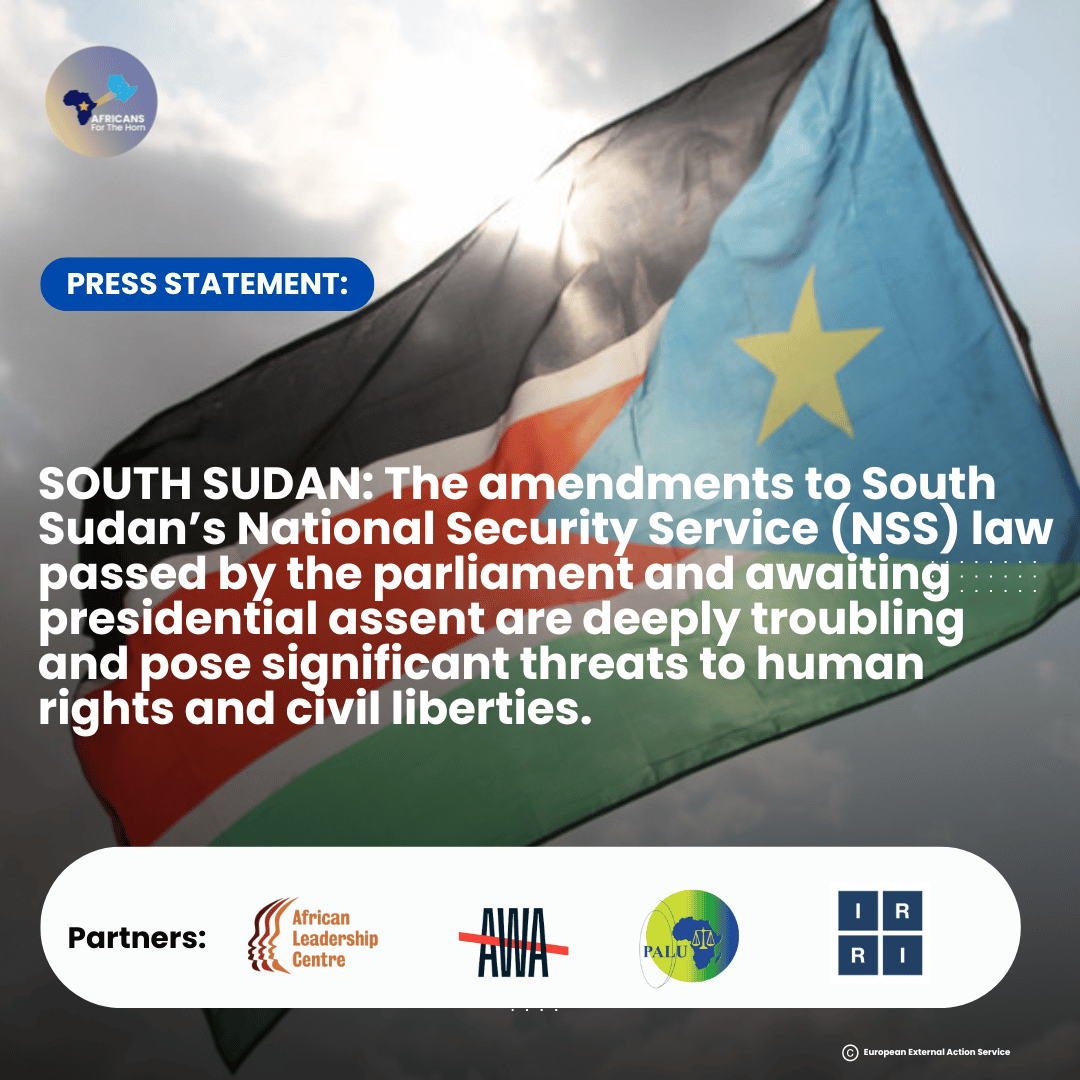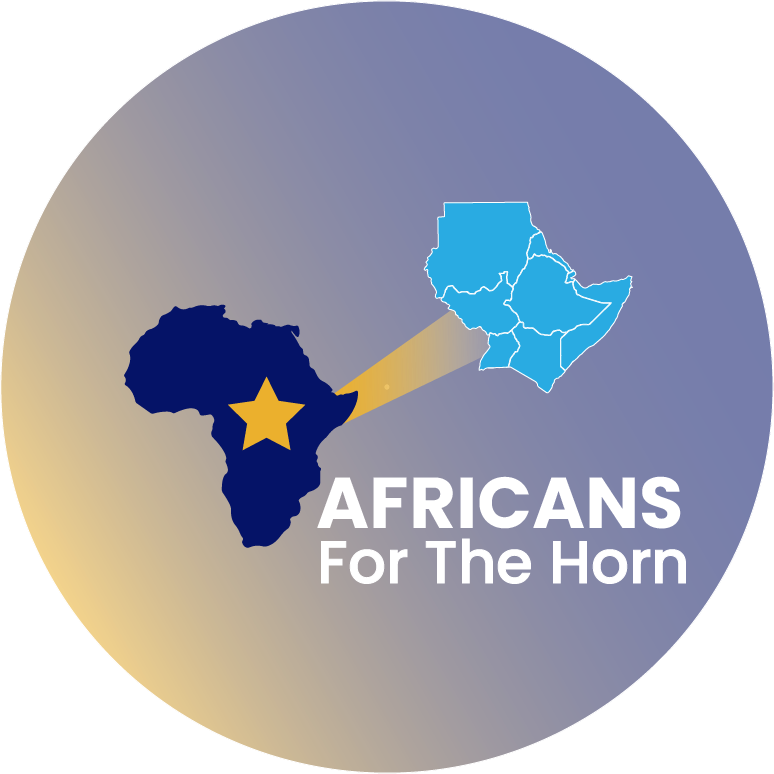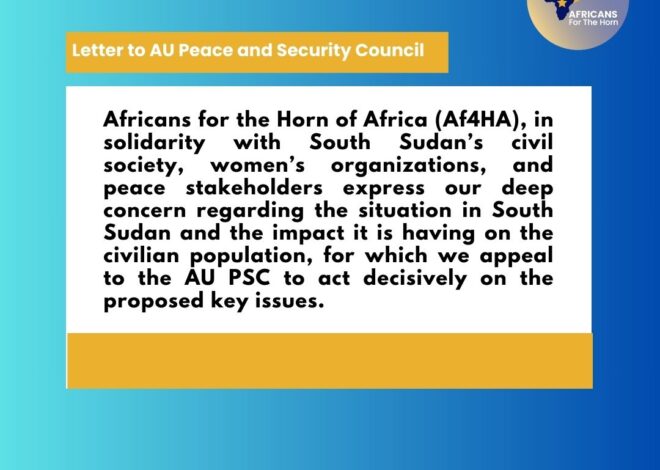
AFRICANS FOR THE HORN OF AFRICA INITIATIVE
SOUTH SUDAN: Africans join in the calls urging President Kiir to reject the retrogressive amendments to the National Security Service (NSS) law
(Nairobi, July 9, 2024)
The amendments to South Sudan’s National Security Service (NSS) law passed by the parliament and awaiting presidential assent are deeply troubling and pose significant threats to human rights and civil liberties.
On July 3, 2024, the National Legislative Assembly passed changes to the 2015 National Security Service Act, following a brief debate and a vote of 274 to 114. These changes permit the National Security Service to continue arresting and detaining individuals without a warrant, perpetuating a legacy of censorship, surveillance, and repression.
The amendments, initially drafted by the National Constitutional Amendment Committee as part of the Revitalized Peace Agreement of 2018, have been contentious. The consensus had been to delete the contentious clauses in the 1st and 2nd reading but these were reintroduced in the 3rd and 4th reading negating the spirit of the R-ACSS. The Presidency and Justice Ministry had previously publicly agreed to limit the NSS powers of arrest and detention. However, the bill presented to parliament in May 2023 continues to allow broad arrest powers under “emergency circumstances” and in the case of vaguely defined “crimes against the state.”
“Vaguely defined provisions on ‘emergency circumstances’ and ‘crimes against the state’ open the doors for abuses, the law should be revised to precisely define and strictly circumscribe any derogations from international human rights principles,” said Don Deya, Chief Executive Officer of the Pan African Lawyers Union.
The government has a history of exploiting such ambiguous provisions to suppress dissent and curtail freedoms of expression, assembly, and association. Rights organizations have documented numerous instances where the NSS has detained activists, critics, and even foreign citizens without warrants, often subjecting them to torture and ill-treatment.
The violations often going beyond South Sudan’s boarders where arrests and illegal renditions of South Sudanese nationals to South Sudan with detention at the National Security Detention Centre “the Blue House”, also known to be the country’s torture centre, and in the deplorable case of Samuel Dong Luak and Aggrey Ezbon Iddri who were picked from Nairobi, Kenya and were eventually killed of those renditioned have been documentented and are currently subject to litigation at the East African Court of Justice (EACJ).
“South Sudan is in the midst of a delicate political transition, which only increases the urgency of creating a legal and political system that allows citizens to speak freely and participate in political processes,” said Dismas Nkunda, Executive Director at Atrocities Watch Africa”
Africans for the Horn of Africa (Af4HA) initiative calls on;
- President Kiir to reject the law and return it to parliament for revision in line with South Sudan’s constitutional and international human rights obligations, and to reign in on the continued illegal detentions and prosecutions under the guise of the NSS law.
- South Sudan’s partners expressed their concerns about the law’s potential to facilitate further abuses by the NSS and to urge the President not to sign the bill.
- To restore public confidence during this intricate political transition, the South Sudanese authorities should strengthen the gaps governing the NSS to guarantee full protection of rights.
“President Kiir has an opportunity to make a significant impact by curtailing the NSS broad powers and fostering a more rights-respecting environment in South Sudan,” Halima Ahmed, Research Associate with Af4HA added.
Af4HA urges immediate action to protect the rights and freedoms of all South Sudanese citizens and
to ensure that the NSS operates within the bounds of the law and respect for human rights.



